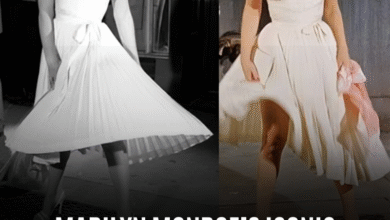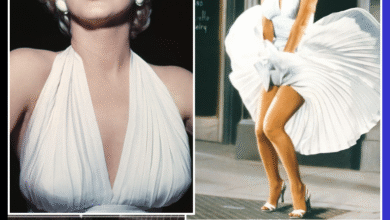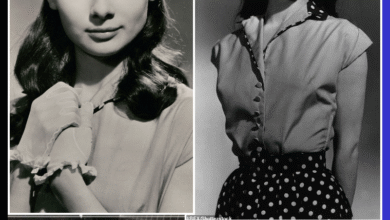The Surprising Actor Who Marilyn Monroe Considered Her Favorite of All Time!
OPINION: This article may contain commentary which reflects the author's opinion.
Marilyn Monroe, one of Hollywood’s most enduring icons, is known not only for her breathtaking beauty and unforgettable performances but also for her deep appreciation of the cinematic world around her. Throughout her career, Monroe worked alongside some of Hollywood’s greatest stars, but she also had her own list of favorite actors, many of whom influenced her work and left a lasting impact on the industry.
Monroe’s name remains synonymous with 1950s glamour, as she rose from a small-town girl to one of the most celebrated figures in entertainment. Known for her roles in classics like Some Like It Hot and Gentlemen Prefer Blondes, Monroe’s fame transcended cinema. Her image became an integral part of American pop culture, and as she captivated audiences, she also developed her own admiration for the giants of the screen.
Clark Gable: The ‘King’ of Hollywood
Out of all the stars Monroe had worked with, only one made it onto her personal list of favorite actors—Clark Gable. Known as “The King of Hollywood” during his heyday, Gable’s career spanned several decades, and his roles in classics like Gone with the Wind (1939), Mutiny on the Bounty (1935), and The Misfits (1961) cemented his status as a legend.
Monroe and Gable’s collaboration in The Misfits would be one of the final roles for both actors. Monroe, who was struggling with personal demons at the time, and Gable, whose health was rapidly declining, created a poignant on-screen pairing. Despite the challenges of working together, Monroe regarded Gable with great respect, and he was the only actor who made it onto her exclusive list. His charm, commanding presence, and versatility likely resonated with Monroe, who found herself drawn to the larger-than-life figures of the industry.
Marlon Brando: The Method Master
Monroe also named Marlon Brando as one of her all-time favorites, despite never having shared the screen with the legendary method actor. Brando, whose transformative performances in A Streetcar Named Desire (1951), On the Waterfront (1954), and The Godfather (1972) defined a new era of acting, was known for his ability to immerse himself fully in his characters, changing the way actors approached their craft.
Brando’s influence on Monroe can be seen in her own performances, particularly in her emotional depth and her understanding of how vulnerability could serve as an asset on screen. While they never worked together, Monroe likely admired Brando’s innovative approach to acting, which stood in stark contrast to the more polished, classical styles of her earlier roles. Like Brando, Monroe often sought to break free from the constraints placed on women in Hollywood, and the connection between their artistry was unmistakable.
Charlie Chaplin: The Master of Silent Cinema
The final name on Monroe’s list is that of Charlie Chaplin, the comedic genius who revolutionized the film industry with his silent films. Known for classics like Modern Times (1936), City Lights (1931), and The Great Dictator (1940), Chaplin’s ability to convey emotion through physicality and expression had a profound impact on the way actors approached comedy and drama.
Monroe, who was often typecast as the “dumb blonde” in Hollywood, may have admired Chaplin’s ability to transcend the limitations of dialogue and create deeply affecting performances purely through body language and facial expressions. Chaplin’s influence can be seen in Monroe’s own comedic timing and her ability to express vulnerability without the need for words.
The Legacy of Monroe’s Favorite Actors
Marilyn Monroe’s list of favorite actors offers a fascinating glimpse into the influences that shaped her career and her understanding of cinema. While Monroe’s own work is celebrated for its combination of vulnerability, charm, and humor, the actors she admired were all known for breaking the mold in their respective genres. Clark Gable’s regal presence, Marlon Brando’s method acting, and Charlie Chaplin’s silent-film mastery all served as sources of inspiration for Monroe, who, despite her own struggles with typecasting, sought to push boundaries and redefine the role of women in film.
Monroe’s admiration for these legends demonstrates her depth as an artist, one who not only recognized the power of performance but also understood the importance of artistic evolution. Her ability to learn from the best in the business helped solidify her place as an icon, and her legacy continues to inspire actors and filmmakers around the world.



